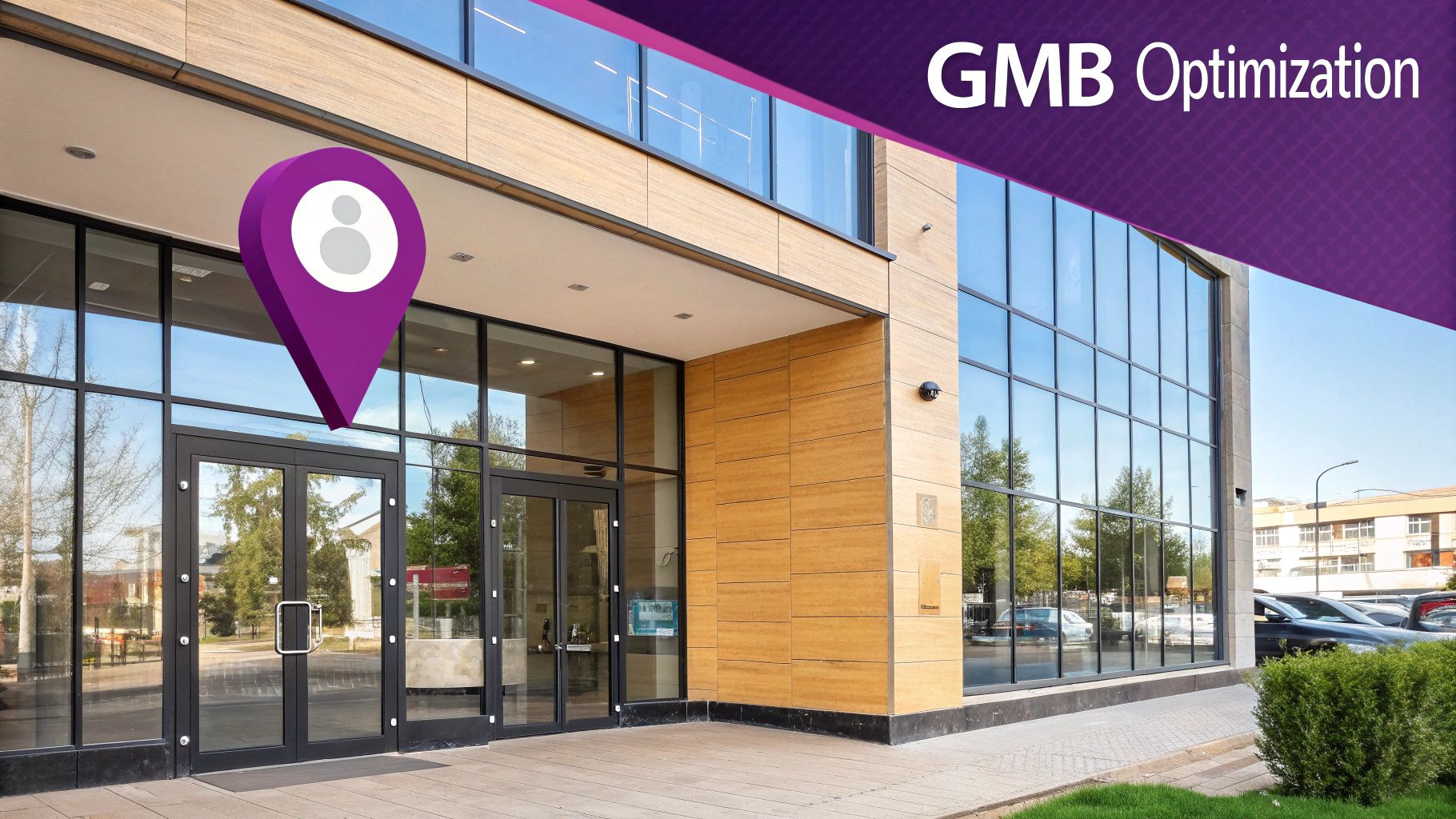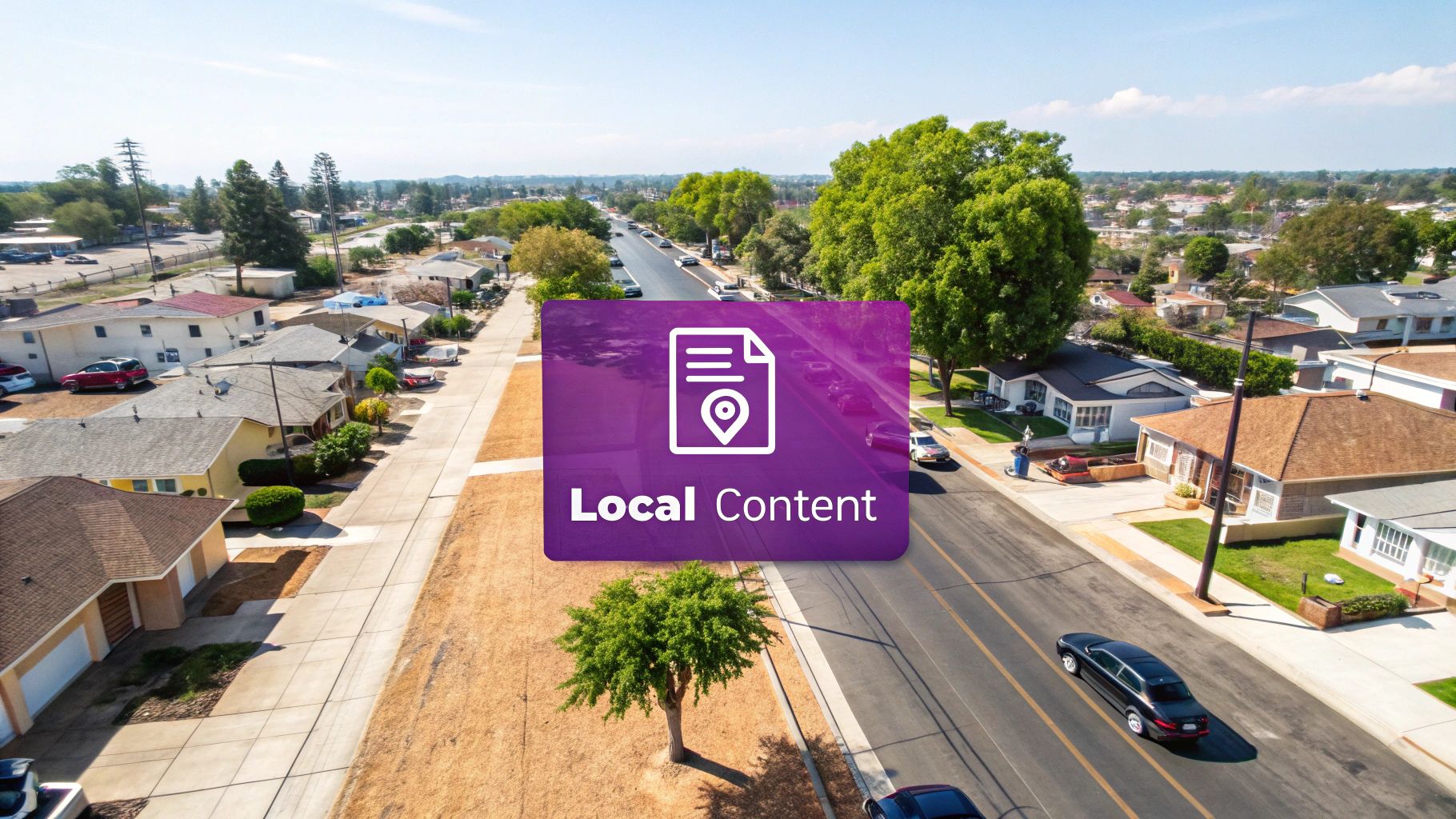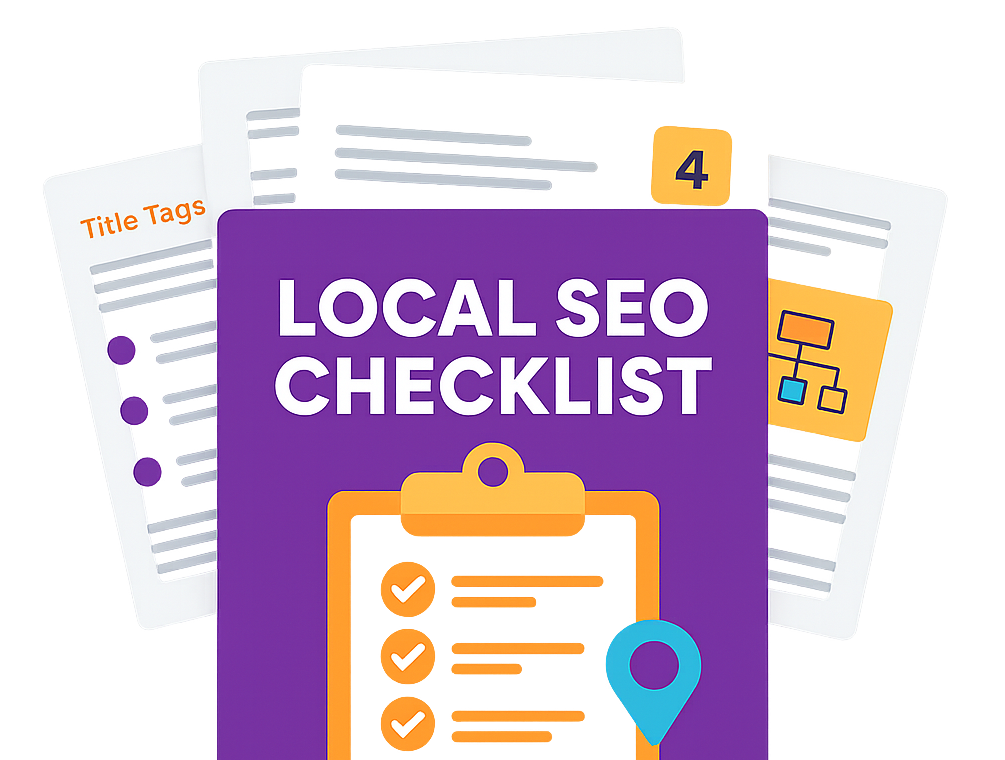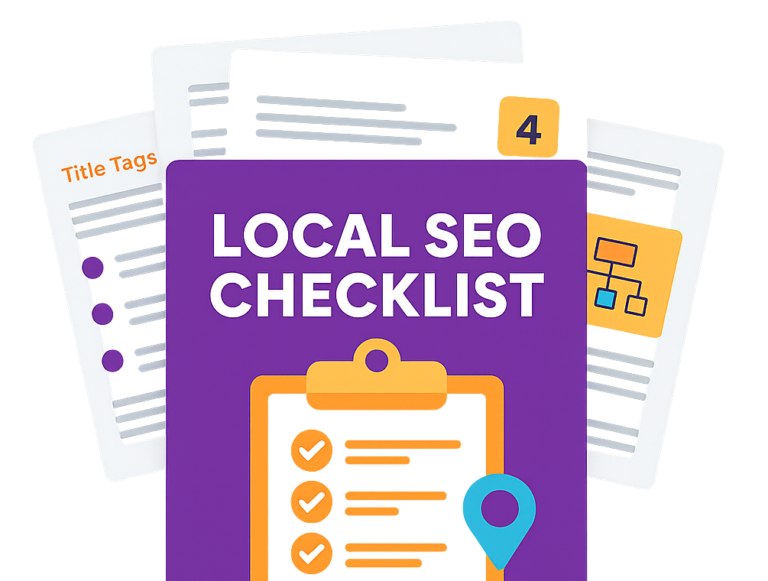In today's competitive landscape, simply having a stunning venue isn't enough to guarantee a full calendar. Potential customers, whether they're booking a wedding, a corporate event, or a concert, start their search online. If your venue isn't visible on the first page of Google, you're losing out to competitors who have mastered their digital presence. This is where specialised Search Engine Optimisation (SEO) becomes your most critical marketing tool.
Effective venue SEO isn't about generic digital marketing; it's a precise science of connecting your unique space with the right audience at the exact moment they're looking to book. A foundational element of this strategy is knowing how to optimise your website for local search, ensuring your venue appears prominently in relevant local queries. This guide will provide a detailed roadmap, breaking down the seven essential venue SEO tactics that are proven to increase online visibility, drive qualified traffic, and ultimately, secure more bookings.
We will move beyond the basics, offering actionable, in-depth strategies tailored specifically for event spaces, concert halls, wedding venues, and conference centres. Each tactic is a crucial piece of the puzzle, from mastering your local digital footprint with Google Business Profile to leveraging the power of every single event you host. By implementing these strategies, you can transform your website from a simple online brochure into a powerful, lead-generating machine that keeps your venue thriving year-round. Prepare to unlock your venue's full digital potential.
1. Mastering Google Business Profile for Maximum Local Impact
For any venue, whether a sprawling arena, a boutique wedding location, or a corporate conference centre, your Google Business Profile (GBP) is the digital front door for local customers. Formerly Google My Business, this free, powerful tool is the absolute cornerstone of local SEO. A well-optimised profile doesn't just put you on the map; it actively works to attract, inform, and convert potential clients directly from Google Search and Maps, making it one of the most crucial venue SEO tactics you can employ.

Think of it as a dynamic, interactive business card. It’s often the very first interaction a potential customer has with your brand. A complete, accurate, and engaging GBP builds immediate trust and provides answers at a glance, significantly influencing a user's decision to click through to your website, call for a booking, or visit in person. For example, The O2 in London expertly uses its profile to provide links to upcoming shows and transport information, paired with high-quality imagery of the arena. Similarly, local wedding venues in Cambridgeshire use GBP Posts to showcase recent wedding setups and seasonal decoration themes, giving couples a real-time glimpse of what’s possible.
Key Implementation Strategies
To transform your GBP from a simple listing into a customer-attraction engine, focus on these actionable areas:
- Meticulous Information Accuracy: Ensure your NAP (Name, Address, Phone Number) is identical across your GBP, your website, and all other online directories. Any inconsistency can confuse search engines and harm your local ranking.
- Active Review Management: Proactively request reviews from happy clients and make it a policy to respond to all feedback within 24 hours. A thoughtful response to a negative review can be more powerful than a dozen positive ones.
- Consistent Content Updates: Use Google Posts weekly to announce upcoming events, share photos from recent functions, or highlight special offers. Treat it like a mini-blog for your venue's latest happenings.
- Rich Media Uploads: Keep your profile visually fresh by uploading new, high-quality photos and videos at least monthly. Show off your spaces, your team, and your events in action.
- Leverage All Features: Diligently complete every relevant section. Enable the messaging feature for quick enquiries, use the Q&A section to pre-emptively answer common questions (like AV equipment availability or capacity), and fill out all applicable attributes such as ‘wheelchair accessible’, ‘free Wi-Fi’, or ‘outdoor seating’.
Key Insight: Your Google Business Profile is not a 'set it and forget it' tool. It requires continuous management to maintain its effectiveness. The more active and detailed your profile is, the more Google will reward it with higher visibility in local search results.
Managing these tasks consistently can be time-consuming. For those looking to streamline their efforts and enhance efficiency, insights into how to automating Google Business Profile management with AI can be particularly valuable. This approach can help maintain a high level of activity on your profile without demanding constant manual oversight.
2. Local Schema Markup Implementation
If your Google Business Profile is the digital front door, then local schema markup is the detailed signposting that guides search engines directly to the most important information on your website. Schema is a form of structured data, essentially a "vocabulary" you add to your site's code. This code doesn't change how your website looks to a human visitor, but it translates your content into a language that search engines like Google can understand with perfect clarity. For venues, this is one of the most powerful technical venue SEO tactics available.
Think of it as adding descriptive labels to your online content. Instead of Google just seeing a string of text like "Classical Concert, 8 PM, 15th October," schema tells it explicitly: "This is an Event. The event name is 'Classical Concert'. The start time is 8 PM. The start date is 15th October." This clarity allows Google to feature your venue in more sophisticated search results, known as rich snippets. For example, Ticketmaster uses extensive event schema, allowing Google to display concert dates, times, and ticket links directly in search results. Similarly, a local wedding venue in Cambridgeshire could use schema to have its star ratings and price range appear under its name in search, instantly building trust and providing key decision-making information.
Key Implementation Strategies
To leverage structured data and help search engines champion your venue, focus on implementing these specific schema types:
- Implement
EventSchema: This is crucial. For every single public event at your venue, from concerts to conferences, useEventschema. Include details like the event name, start/end dates, location, performers, and ticket availability. - Use
LocalBusinessor a Specific Sub-type: Mark up your core business details usingLocalBusinessschema, or a more specific type likeEventVenueorWeddingVenue. This reinforces your NAP (Name, Address, Phone Number) and operating hours. - Add
AggregateRatingandReviewSchema: If you collect reviews on your own website, useAggregateRatingschema to mark up your average score and the number of ratings. This can result in star ratings appearing directly in search results, significantly boosting click-through rates. - Choose JSON-LD Format: Implement your schema using JSON-LD (JavaScript Object Notation for Linked Data). It's Google's recommended format because it can be placed neatly in the
<head>section of your HTML, making it easier to manage and less likely to break your page layout. - Validate and Test Relentlessly: Before and after deploying your code, use tools like Google's Rich Results Test to validate your markup. Check Google Search Console's "Enhancements" reports to monitor for errors and see how Google is processing your structured data.
Key Insight: Schema markup is about turning your website from a simple collection of pages into a structured database for search engines. By spoon-feeding Google precise information about your venue and events, you increase your chances of earning highly visible rich snippets that capture user attention and drive qualified traffic.
Implementing schema can seem technical, but its impact on your visibility is profound. To go deeper, understanding why schema markup is important for SEO provides a foundational knowledge of how this tactic directly influences your search performance.
3. Location-Based Content Strategy
Beyond optimising your venue’s core pages, a powerful way to dominate local search results is by developing a location-based content strategy. This approach involves creating content that is not just about your venue, but about your venue’s place in its local community. By producing articles, guides, and resources centred around your town, city, or region, you capture a wider net of search traffic from potential visitors who are exploring the area, thereby establishing your venue as a central, authoritative figure in the local landscape.

This tactic shifts the focus from "what we offer" to "what our area offers, with us at the heart of it." For instance, a wedding venue in the Cotswolds could create a blog post titled "The Ultimate Guide to a Spring Wedding in the Cotswolds," featuring local florists, photographers, and seasonal attractions. This not only attracts couples searching for "Cotswolds wedding" but also establishes valuable local connections. Similarly, a conference centre in Manchester might publish a guide to the "Best Business Lunches Near the Northern Quarter," positioning itself as a helpful resource for corporate event planners and attendees.
Key Implementation Strategies
To build a content strategy that makes your venue synonymous with its location, focus on these practical steps:
- Conduct Local Keyword Research: Use SEO tools like Ahrefs or SEMrush to identify what people are searching for in relation to your area. Look for keywords like "things to do in [city]", "[area] wedding suppliers", or "best corporate event locations near [landmark]".
- Create Evergreen "Pillar" Content: Develop comprehensive guides that will remain relevant for years. Examples include "A Seasonal Guide to Visiting [Your Town]" or "Planning a Corporate Retreat in [Your Region]". These anchor pieces can be updated annually and consistently draw in traffic.
- Highlight Local Landmarks and Partners: Weave mentions of nearby attractions, popular restaurants, and partner businesses into your content. This strengthens your local signal for search engines and provides genuine value to readers planning a visit.
- Optimise for "Near Me" and Local Intent: Structure your content to naturally answer location-based queries. Use phrases like "event space near [train station]" or "conference facilities in [business district]" within your headings and body text.
- Leverage Local Imagery: Fill your posts with high-quality, original photographs of your venue and the surrounding area. Authentic images are more engaging and reinforce your local identity far better than generic stock photos.
- Collaborate on Content: Partner with other local, non-competing businesses (e.g., hotels, caterers, tour operators) to co-create content. This allows you to tap into their audience and build valuable local backlinks.
Key Insight: A location-based content strategy transforms your website from a simple digital brochure into a valuable local resource. This builds topical authority, attracts a highly relevant audience, and makes your venue an indispensable part of the local conversation, a key component of modern venue SEO tactics.
For businesses looking to deepen their understanding of local search signals, exploring specific local SEO tips for Cambridgeshire businesses can provide a framework applicable to any region. The principles of hyper-local targeting are universal and crucial for success.
4. Multi-Location SEO Management
For venue groups with multiple sites, such as hotel chains, restaurant franchises, or a portfolio of conference centres, a one-size-fits-all SEO strategy is fundamentally flawed. Multi-location SEO management is the specialised discipline of optimising each individual venue's online presence while maintaining overall brand consistency. This approach ensures each location can compete effectively in its own local market, a critical component in any comprehensive list of venue SEO tactics.
Think of it as running a fleet of ships under one flag. Each ship (venue) needs to navigate its own local waters (search results), but they all represent the same brand. Large chains like Marriott hotels or Odeon Cinemas excel at this; each hotel or cinema has its own optimised local page and Google Business Profile, complete with local reviews, photos, and event information, all while reinforcing the main brand identity. This allows a user searching for "conference centre near Manchester Piccadilly" to find that specific location, not just the generic corporate homepage, leading to much higher conversion rates.
Key Implementation Strategies
To successfully scale your SEO efforts across multiple venues without diluting brand authority or confusing search engines, focus on these structured actions:
- Create Unique Location Pages: Each venue must have its own dedicated page on your website (e.g.,
yourvenue.co.uk/locations/cambridge). This page should feature unique content, including local-specific descriptions, photos, testimonials from local clients, and details about nearby transport links or attractions. - Location-Specific Keyword Optimisation: Tailor your on-page SEO for each location. Title tags should be specific, like "Wedding Venue in the Cotswolds | [Your Brand Name]", and meta descriptions should highlight what makes that particular site unique.
- Implement Local Schema Markup: Use
LocalBusinessschema on each location page. This structured data explicitly tells Google the Name, Address, and Phone Number (NAP), opening times, and other key details for that specific venue, helping it appear correctly in local map packs and rich results. - Manage Individual Google Business Profiles: While it might seem daunting, each venue requires its own, fully optimised Google Business Profile. Centralised management tools can help, but each profile must be treated as a unique entity with its own reviews, photos, posts, and Q&As.
- Localised Content and Link Building: Develop content that is relevant to each venue’s community. This could be a blog post about partnering with a local Cambridge supplier or sponsoring a local charity event. Pursue backlinks from local directories, news sites, and blogs relevant to each specific area.
Key Insight: The core principle of multi-location SEO is to prove to Google that each of your venues is a distinct, valuable, and active part of its local community. Generic, duplicated content across location pages is a major pitfall that will hinder your performance.
Scaling these efforts can be complex. Specialised multi-location management platforms like Yext or Reputation.com are designed to streamline the process of updating listings and monitoring reviews across hundreds or even thousands of profiles. This technology, combined with a sound local strategy, is the key to dominating local search at scale.
5. Event-Driven SEO Optimisation
A static website is a missed opportunity. For venues, a dynamic SEO strategy that leverages upcoming events, performances, and bookings is one of the most powerful venue SEO tactics available. This approach, known as event-driven SEO, involves creating specific, optimised content for each event you host. This not only attracts search traffic from people looking for that specific event but also continuously signals to Google that your venue is active, relevant, and a hub of current activity, boosting your overall authority.

This tactic turns your event calendar into a powerful stream of fresh, indexable content. Think of how major entertainment companies like Live Nation create unique, highly optimised pages for every single concert, capturing traffic for artist names, tour names, and date-specific queries. The same principle applies at any scale. A Cambridgeshire wedding venue can create content around upcoming bridal shows it's attending or hosting, while a corporate conference centre in London should build dedicated pages for each major industry summit on its schedule, complete with speaker lists and agenda details.
Key Implementation Strategies
To transform your events calendar into a high-performance SEO asset, focus on these core actions:
- Create Unique Event Pages Early: As soon as an event is confirmed, create a dedicated page on your website. The earlier the page is live, the more time it has to be indexed and rank in search results.
- Optimise Page Elements: The page title, URL, and H1 heading should all include the event name and, where relevant, the main performer, speaker, or theme. For example:
yourvenue.co.uk/events/cambridge-tech-week-2024is far more effective than a generic ID. - Implement Event Schema Markup: Add event schema (structured data) to your event pages. This helps search engines understand the details – name, date, time, location, price – and can result in a rich snippet in search results, making your listing more prominent.
- Build Supporting Content: Don't just list the event details. Create related blog posts like 'What to Expect at [Event Name]', 'How to Get to Our Venue for [Event Name]', or an interview with a keynote speaker. This captures a wider range of long-tail keywords.
- Leverage High-Quality Media: Use professional photos and videos from past similar events to make the page more engaging. Once the event is over, update the page with new imagery, turning it into an evergreen asset that showcases your venue's capabilities.
Key Insight: Event-driven SEO creates a constant cycle of relevance. Each new event page is a fresh signal to Google, building a long-term library of content that demonstrates your venue's authority and activity in its niche, from corporate functions to live music.
6. Local Citation Building and NAP Consistency
Beyond your own website and Google Business Profile, your venue's digital identity exists across a vast network of online directories, review sites, and local business platforms. Local citation building is the foundational practice of ensuring your venue is listed on these sites with perfectly consistent information. This strategy hinges on the accuracy of your NAP (Name, Address, Phone Number), a critical signal that validates your business's existence and location for search engines like Google.
Think of each consistent citation as a vote of confidence for your venue. When Google repeatedly finds the exact same NAP details for your conference centre or wedding barn across multiple trusted sources, it reinforces the credibility and legitimacy of your business, which is a powerful factor in local search rankings. For example, a prestigious hotel like The Ritz-Carlton ensures its details are immaculate across luxury travel directories, while local wedding venues in Cambridgeshire focus on maintaining precise listings on platforms like The Knot and Hitched. Any discrepancy, even a minor one like "Ltd." vs "Limited", can create confusion and erode this trust, making it a surprisingly impactful part of your venue SEO tactics.
Key Implementation Strategies
To build a strong and trustworthy citation profile that boosts your local visibility, concentrate on these core actions:
- Establish a Golden Record: Before you begin, define one single, authoritative version of your NAP. This is your master record, and it must be used identically everywhere, from your website footer to every directory listing.
- Target Core Directories First: Start with the most influential data aggregators and directories. This includes platforms like Yelp, Yell, Foursquare, and Apple Maps. Getting these right provides a solid foundation.
- Pursue Niche-Specific Listings: Identify and secure listings on directories relevant to your venue's specialisation. A music venue should be on Bandsintown, a corporate event space on Cvent, and a historic house on heritage and tourism sites.
- Audit and Clean Up Existing Citations: Regularly search for your venue online to find and correct any incorrect or outdated listings. Inconsistencies often accumulate over time due to business moves or changes in phone numbers.
- Utilise Management Tools: For efficiency, consider using citation management services. There are numerous excellent local SEO tools available that can help you automate the process of building, monitoring, and cleaning up your citations across hundreds of websites.
Key Insight: Consistency is more important than quantity. Having 50 perfectly accurate and consistent citations is far more valuable for your SEO than having 200 listings with minor variations and errors. Focus on quality and precision.
Building a robust citation portfolio is a methodical process that pays significant dividends in local search authority and customer trust. It signals to both search engines and potential clients that your venue is an established and reliable local business.
7. Review Management and Response Strategy
In today's digital landscape, your online reputation is intrinsically linked to your search visibility. For venues, a proactive review management and response strategy is one of the most powerful venue SEO tactics available. It goes beyond simple customer service; it directly influences local search rankings, builds unshakable customer trust, and provides invaluable social proof that can sway booking decisions. Search engines like Google see a steady stream of positive reviews and active owner responses as strong signals of a reputable, active, and customer-focused business, rewarding it with higher placement.

Think of reviews as a public conversation about your venue. Ignoring this conversation is a missed opportunity, while actively participating in it demonstrates that you value your clients' experiences. For instance, major hotel chains like Marriott have perfected this, maintaining high review scores through systematic and personalised response strategies. On a local level, a wedding venue that consistently receives and showcases five-star reviews detailing its attentive staff and beautiful grounds is far more likely to attract new couples than a silent competitor. Responding to a negative review with professionalism and a genuine offer to make things right can often turn a detractor into a loyal advocate, showcasing your commitment to excellence for all potential customers to see.
Key Implementation Strategies
To build a robust reputation that boosts your SEO, implement these focused strategies:
- Prompt and Professional Responses: Aim to respond to every review, both positive and negative, within a 24-48 hour window. This shows you are attentive and value all feedback.
- Systematic Review Solicitation: Don't wait for reviews to trickle in. Actively and politely request them from happy clients. A simple follow-up email after an event, with a direct link to your preferred review platform (like Google or Tripadvisor), can significantly increase your review volume.
- Create Response Templates: While every response should be personalised, having pre-written templates for common scenarios (e.g., a glowing review, a complaint about noise, a compliment about a staff member) saves time and ensures a consistent, professional tone.
- Leverage Positive Feedback: Showcase your best reviews directly on your website. Create a dedicated testimonials page or embed a dynamic review widget on key pages like your homepage or booking page. This reinforces trust at critical decision-making points.
- Address Negativity Constructively: When faced with a negative review, respond publicly by acknowledging the issue, apologising for the subpar experience, and taking the conversation offline to find a resolution. This shows accountability and professionalism.
Key Insight: A comprehensive review management strategy is not just about damage control; it's a vital component of your local SEO and digital marketing. Each review is a piece of user-generated content that helps Google understand your venue's relevance and authority, directly impacting your visibility.
Developing a consistent and effective approach is crucial for success. For those wanting to delve deeper, you can learn more about building a robust review management and response strategy to ensure your venue's online reputation is a powerful asset.
Venue SEO Tactics Comparison Matrix
| Strategy | Implementation Complexity | Resource Requirements | Expected Outcomes | Ideal Use Cases | Key Advantages |
|---|---|---|---|---|---|
| Google Business Profile Optimisation | Moderate – requires ongoing updates | Moderate – regular content & review monitoring | Improved local search visibility and customer engagement | Local businesses seeking direct Google presence | Free platform, boosts local rankings, direct customer interaction |
| Local Schema Markup Implementation | High – technical knowledge needed | Low to Moderate – developer assistance | Enhanced search result display with rich snippets | Websites wanting better search understanding | Improves SEO clarity, supports rich snippets and voice search |
| Location-Based Content Strategy | Moderate to High – ongoing content creation | High – research and content production | Increased local search traffic, topical authority | Venues focusing on local content marketing | Captures long-tail searches, builds community presence |
| Multi-Location SEO Management | High – complex and scalable | High – extensive management and content | Maximised visibility for multiple venues | Chains/franchises with multiple locations | Location-specific optimisation, scalable SEO framework |
| Event-Driven SEO Optimisation | Moderate – frequent updates needed | Moderate – content and event coordination | High-intent traffic during event periods | Venues hosting frequent events | Captures event-driven traffic, boosts ticket sales |
| Local Citation Building & NAP Consistency | Moderate – requires ongoing effort | Moderate – directory submissions and audits | Improved local rankings and trustworthiness | Businesses needing accurate, widespread listing | Builds local trust, improves discoverability across platforms |
| Review Management and Response Strategy | Moderate – continuous monitoring | Moderate – review solicitation and response | Enhanced reputation and local search rankings | Venues prioritising reputation management | Builds trust, directly impacts rankings, supports customer service |
Turning Tactics into Bookings: Your Next Steps
We have navigated through a comprehensive toolkit of powerful venue SEO tactics, each designed to elevate your digital presence and drive tangible business results. From the foundational precision required for your Google Business Profile to the sophisticated application of local schema markup, you now possess a strategic blueprint for dominating local search results. The journey doesn't end with understanding; it begins with consistent, focused implementation.
The tactics discussed in this article, such as developing a location-based content strategy and mastering event-driven optimisation, are not isolated manoeuvres. Instead, think of them as interconnected components of a single, powerful engine. Your local citation building ensures the information Google finds about you is consistent and trustworthy, while your review management strategy builds social proof and directly influences potential customers. Each element reinforces the others, creating a cumulative effect that is far greater than the sum of its parts. This synergy is what transforms online visibility into a full event calendar.
From Theory to Tangible ROI
The true value of mastering these concepts lies in their direct impact on your bottom line. An effectively optimised online presence does more than just attract clicks; it attracts the right kind of clicks from people actively searching for a venue like yours. This is where the granular details matter. For instance, a well-written, location-specific blog post not only boosts your authority but also answers the precise questions your ideal clients are asking.
By consistently applying these principles, you are making a long-term investment in your venue's sustainable growth. It is about building an asset, not just running a campaign. You are creating a digital footprint that will continue to attract enquiries and bookings long after the initial work is done. The key is to move from a reactive to a proactive stance. Do not wait for bookings to slow down before you reassess your SEO. Instead, integrate these practices into your regular marketing activities.
Creating a Sustainable SEO Workflow
To avoid feeling overwhelmed, it's crucial to break this down into manageable, ongoing tasks. A practical approach might look like this:
- Monthly: Dedicate time to a full review of your Google Business Profile. Update photos, respond to all new reviews, and create a new Q&A or Post.
- Quarterly: Conduct a NAP (Name, Address, Phone number) audit across your key local citations to ensure absolute consistency. Brainstorm and plan your location-based content for the next three months.
- Bi-Annually: Perform a technical SEO check-up. Ensure your schema markup is still validating correctly and that your website's mobile performance is up to scratch. This is also a good time to research evolving search trends. Ultimately, the goal of all these SEO tactics is to drive bookings; understanding how to find profitable keywords that convert is key to ensuring your efforts target real, high-intent customers.
This structured approach transforms a daunting list of tasks into a routine business process. Embracing these venue SEO tactics is not just about pleasing search engine algorithms; it is about fundamentally connecting your physical space with the digital world where your future clients are searching. By taking these deliberate, strategic steps, you are not just optimising a website. You are laying the foundation for a thriving, fully booked venue for years to come.
Feeling ready to turn these insights into action but unsure where to begin? The team at Bare Digital, a specialist SEO agency based in Cambridgeshire, helps businesses like yours implement effective, results-driven strategies. Let us help you build a powerful online presence that fills your calendar by visiting Bare Digital to request your free SEO Health Check today.








